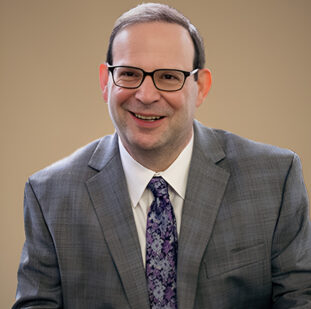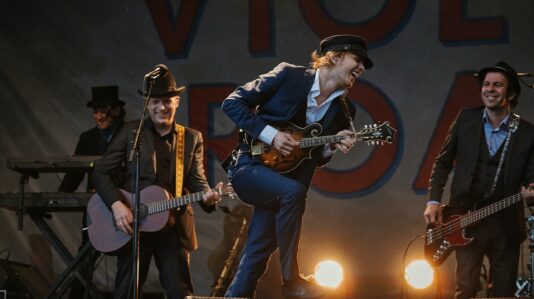In anticipation of this year’s midterm elections, we can look forward to the usual PAC moneymen, countless commercials, polls, trolls, sound bites and sniping. But there is another tradition within our national elections: one candidate or another enraging some well-known recording artist by using the artist’s song without consent.
Already we’ve seen singer-songwriter, Jackson Browne, successfully sue the Republican Party and late-Senator McCain over the use of his song “Running On Empty” in a 2008 campaign ad. In the 2020 presidential election, Neil Young commenced and subsequently dropped a lawsuit against then-President Donald Trump’s campaign over its use of “Rockin’ in the Free World,” and “Electric Avenue” singer Eddy Grant litigated with Mr. Trump over use of the hit song in an ad. Former Arkansas Governor Mike Huckabee entered into a settlement agreement with the rock band Survivor when he played “Eye of the Tiger” during a rally for Kim Davis, a county clerk who refused to issue marriage licenses for same-sex couples.
How Can Songs be Used in Political Campaigns?
What can and can’t you do when using recordings of songs in connection with political campaigns? While some of the dos and don’ts involve some now-familiar copyright and music licensing principles, others potentially involve the federal trademark statute and various states’ laws on the right of publicity, as noted in ASCAP’s FAQs on music in political campaigns.
Who can forget Mr. Trump riding down the escalator to the Neil Young classic to announce his candidacy? That use is probably permissible. Until recently, if a venue, such as a hotel, convention center or other public gathering place has licenses from the PROs (ASCAP, BMI and SESAC), then the use of the music was likely allowed and there wasn’t much the songwriters can do about it. The songwriters had a better case against Governor Huckabee, as organizers of that outdoor post-prison rally probably did not obtain PRO licenses for the event. However, both ASCAP and BMI’s licenses for convention centers, hotels and similar venues exclude music from conferences, conventions, trade shows and other events hosted or controlled by a third party. ASCAP and BMI now offer public performance licenses to political campaigns regardless of where the event is held. And both licenses allow a songwriter to exclude their songs from a particular political campaign license and for the PRO to then notify the campaign in question of the excluded songs.
Notice I mentioned songwriters and not recording artists. There has long been a public performance right in musical works and that right is codified in Section 106 of the Copyright Act. However, the U.S. is one of less than a handful of nations, including North Korea and Iran, that doesn’t have a public performing right in sound recordings for traditional television and radio broadcasts, or for playing the recording over loudspeakers. Although legislation has often been introduced over the recent years and a new bill is pending in Congress, currently the only public performance right in a sound recording is in “digital audio transmission,” (i.e., Internet streaming), and SoundExchange is the U.S. collective that licenses those rights and pays out royalties on behalf of artists and labels.
Can Political Candidates Fair Use Campaign Music?
The use of clips of politicos and other notables on newscasts would be clear examples of fair use under Section 107 of the Copyright Act. Before you even get to the four factors of Section 107, the statute states that items like “criticism, comment, news reporting, teaching, scholarship, or research” are among the uses typically found to be fair. TV networks and stations also have PRO licenses to cover the music use.
Both songwriters and recording artists would have a compelling case under copyright law if a candidate used a song in a commercial without permission. Using pre-recorded music in any audio-visual work requires sync licenses from both the copyright owner of the song (the music publishers) and the copyright owner of the recording of the song (the label). A fair use argument for this kind of usage would almost certainly fail, given that these uses are typically licensed. Nor could a candidate claim that the use of the music is permitted as First Amendment “political” speech. The First Amendment protects the right of individuals (and according to the Supreme Court, corporations) to freedom of expression, especially political speech. It doesn’t generally give you the unfettered right to use someone else’s expression, however.
False Advertising and Trademark Infringement Claims
But consideration of Copyright Act provisions isn’t the end of the inquiry here. Artists may also claim violations of Section 43(a) of the Lanham Act, the federal trademark statute. Although it’s generally applied to false advertising claims, the statute could be used to claim that the association with an artist creates a “likelihood of confusion” based upon a misleading “association… with another person, or as to the origin, sponsorship, or approval of his or her goods, services…” or in other words, a false or misleading endorsement of the candidate. So, regardless of PRO licenses, candidates would be well advised to get permission if they wanted to use anyone’s hit as a theme song.
Moreover, it’s possible that a candidate could violate an artist’s actual trademark, which would constitute a direct violation of the Lanham Act, which – like the Copyright Act – can subject an infringer to money damages and injunctive relief. While it’s not likely that a candidate would use a band’s trademarked logo, names and phrases associated with recording artists and other entertainers often are trademarked. Just see how fast Michael Buffer’s legal eagles will swoop down on you if you use the phrase, “let’s get ready to rumble” in any kind of commercial activity. Many artists, including Madonna, have trademarked their names, and Taylor Swift filed a whole bunch of trademark applications for phrases associated with her 1989 album. As any copyright maven knows, titles, names, short phrases and slogans can’t be copyrighted, but they can be trademarked for all kinds of uses – from apparel to greeting cards.
Right of Publicity Violations
Then there’s the “right of publicity” (sometimes referred to as the right to privacy), which, unlike copyright and trademark, is governed by individual state’s laws. While many states have statutes governing this right, including New York and California, other states enforce these rights based on common law (judicial precedents). The right of publicity typically includes the use of an individual’s name and likeness for commercial purposes. That’s why songwriter, label, management and other agreements typically have provisions granting the use of the person’s name and approved likeness and bio for a variety of uses. While most composers would hardly object to their music publisher or label using their name and image to promote their works, these rights don’t automatically flow with the copyrights to songs or recordings of them. A candidate’s use of a song without permission could constitute a violation of the artist’s publicity/privacy rights.
And there’s another wrinkle to the right of publicity. In some states, like California and in certain instances, New York, a celebrity’s right to exploit his persona extends beyond the grave. In others, like Minnesota, the right terminates when the individual does. So, in addition to wills, trusts and other documents, if you’re a celebrity, a very important aspect of estate planning is deciding upon your domicile at the time of your eventual demise.
Conclusion
So, what have we learned here? Campaigners, much like cover bands, should be careful about using songs. If you’re paying tribute to a band by simply performing covers of their songs in a venue that has PRO licenses, then you’re almost certainly okay. But if you start selling hats, T-shirts and mugs emblazoned with the band’s logo; a picture of its members; a well-known phrase from one of their songs; or use the songs to sell products or services, then you’d better be prepared to pay tribute in the form of cold cash as you could run afoul of trademark and publicity laws.
One would think that politicians and their advisors would know this by now. Given that there are artists on every point in the political spectrum, a candidate could simply solicit one sympathetic to their views and avoid all sorts of trouble. So, when it comes to using someone else’s stuff, whether in political campaigns or artistic collages, when in doubt, leave it out. Or as I’ve said before, you might want to seek consent of the rights holder (or the advice of competent counsel) before putting it in.
If you have a question about licensing songs, filing trademarks, registering a copyright or any other entertainment law matter, our experienced attorneys are ready to help. Contact a member of our team.





